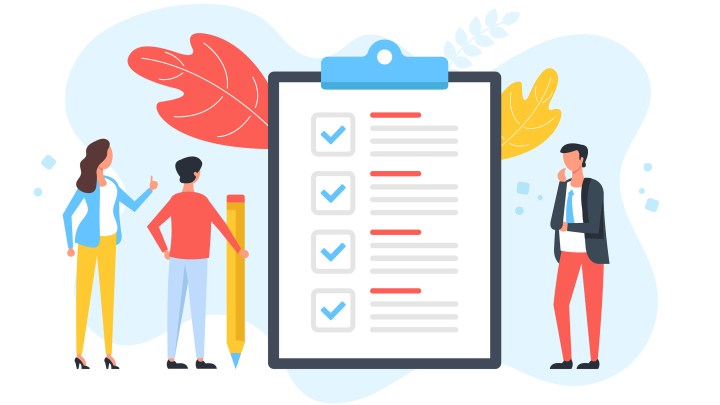INSURANCE
Checklists to help you stay covered during emergencies over the holidays

Criminals never go on holiday. Here are a few simple things you can do to keep yourself safe during the holidays and beyond.
Covid-19 fears may lead many people to cancel their holiday plans, opting to stay at home. Others, suffering pandemic fatigue after two years of lockdown and restrictions, may choose to holiday in other parts of the country instead.
Regardless of whether you choose to stay home or to travel to other provinces, December is a great time to take care of your insurance admin so that your cover remains intact for emergencies.
Rita Cool, a certified financial planner at Alexander Forbes, says this is a good time to make sure your life file is up to date.
“Your life file is where you should keep your marriage certificate, your will and any other important documents, such as lists of your investments. Include all your policies and information, that will assist your family in the event of your death, in this file. Make sure someone you trust knows where the file is,” she says.
Cool notes that if you are involved in a car accident, you may be in a situation where you are unable to talk. “At the minimum, have medical aid details and a contact person’s details available so that the person helping you at the scene can contact them to assist.
“Your medical aid company and number can help determine which hospital you end up in after an accident and the information can save your life. Keep something similar in the car itself in case your wallet or cellphone goes missing in the accident,” Cool says, adding that if your children are old enough, you should make sure they know who to contact if anything happens to you.
If you are planning to travel internationally, notify your bank ahead of your departure so your cards are not cancelled or blocked for suspected fraud.
Greta Goosen, head of customer experience at MiWay Insurance, says before you head out for a road trip or even if you are staying home, you should take the time to give your car a thorough once-over.
“Worn or damaged tyres can put you in serious danger, particularly in slippery conditions, and can also put any potential claims at risk even if you’re involved in an accident you didn’t cause,” she says.
Your tyre checklist
Check for punctures, cuts and bulges, which could potentially increase your risk of a flat tyre at the most inopportune moment.
Areas of uneven wear and tear are a sure sign that your wheel alignment is out and needs to be checked.
Make sure that any missing valve caps are replaced to prevent dirt from clogging valves, which could lead to a loss of air pressure.
Ensure the tread depth of your tyres is well above the minimum regulatory depth of 1.6mm to avoid the possibility of aquaplaning on wet roads and to ensure any potential insurance claim isn’t compromised.
Regularly check your tyre pressure to maintain the overall health of your tyres. If you’re unsure about the correct pressure for your car, check the owner’s manual or look for pressure figures on the inside of the driver’s door or inside the fuel filler cap.
Remember to apply the same checks to your spare tyre, ensuring it conforms to basic safety standards to avoid any potential risks in the event of a blow-out or flat tyre.
Your home contents checklist
Your home contents can always be replaced, but in a time when everyone is counting pennies and the future is uncertain, preventing loss is always the win.
Specify your valuables. Goosen says that, depending on your insurer, the majority of your possessions should be covered by your general household or car insurance. However, if more expensive items like TVs, laptops, cellphones and pieces of jewellery exceed a certain value threshold, they will need to be specified in your insurance policy. (You will also need to obtain proof of their value.)
High-value items –particularly those like laptops, handbags and electronics that are more likely to be carried with you – should be specified with a correlating value to reduce any potential setbacks when filing a claim.
Do your sums. Make sure that high-value items are covered in line with their current replacement value, rather than for the amount you initially paid. Review and amend your insurance cover annually, considering inflation and fluctuations in the exchange rate.
Your cybersecurity checklist
Cybercrime never takes a holiday, cautions Brendan Kotze, chief development officer at cybersecurity company Performanta.
“The combination of relaxation and increased spending during the festive season heightens cybercrime activities and the 2021 year-end season will likely be a bonanza for online criminals because we are spending much more online than before,” he says.
Additional factors heighten the risk of online crime. The increase in transactions during holidays can make it tougher to spot fraudulent activities.
Enable device location services. Offline criminals are keen to steal your phone or other devices. Many modern devices have a “find me” service – check if yours provides one and activate it. And be careful about your belongings in public.
Be suspicious of apps. Criminals can use apps on your phone to spy on you and steal your details. Only download apps from official app stores, and even then, read the user reviews carefully.
Watch out for holiday scams. Online criminals use a variety of scams to steal your details and money. These tactics include fake charity drives, coupons and vouchers, prizes and unbelievable specials. They often piggyback on the names of known brands. If you see a special offer or voucher associated with a particular brand, contact them or check their official social media feeds for confirmation.
If the given web address looks suspicious – for example, brandname.somethingelse.com instead of brandname.com – avoid that site. Additionally, if the secure connection lock in the browser bar looks odd, or if the site uses the http: protocol instead of https: (this appears ahead of the web address in the browser), avoid it as well.
Scams will often appear via WhatsApp or social media sites. They fool people you know into sending those messages.
’Tis the season for phishing. Phishing is the act of an email or text message that looks like it’s from someone you know or trust. For example, it might be a message warning that your bank account will be frozen unless you confirm your login details, and it provides a link to click. This is an attempt to steal your details. A bank will never ask to confirm your log-in details.
If you get a message that tries to scare you into doing something, directly contact the company it claims to be. Do not click on links in these messages. The same goes for any messages asking for money or favours (like doing a transaction on behalf of someone you think you know), or claiming you have won something.
Activate two-factor authentication. Many of us already use two-factor authentication in the form of one-time pins or response menus that appear on our phones. It’s a very effective way to thwart online criminals. You should enable two-factor authentication (also called multifactor authentication) on sensitive services such as online banking.
Be careful about what you post on social media. This issue occurs more with “offline” criminals, but it’s good to be aware. If you go away for a holiday and post about it on social media, it could alert criminals that your home is uninhabited. Rather wait and post your photos after your return so no one can track your movements.
Make sure your posts are private and avoid posting too much information about your activities. DM168
This story first appeared in our weekly Daily Maverick 168 newspaper which is available for R25 at Pick n Pay, Exclusive Books and airport bookstores. For your nearest stockist, please click here.





















 Become an Insider
Become an Insider
Comments - Please login in order to comment.